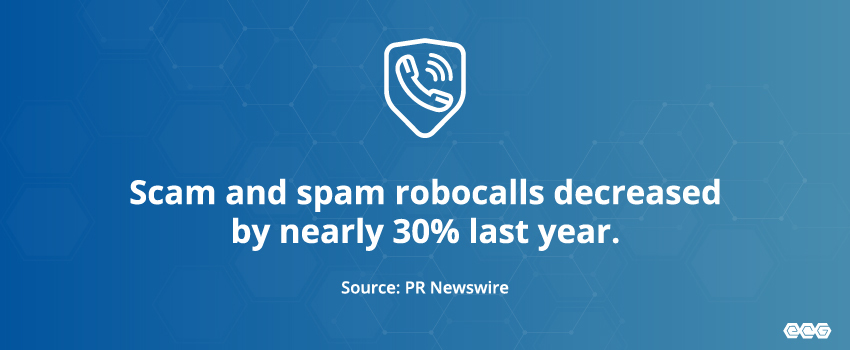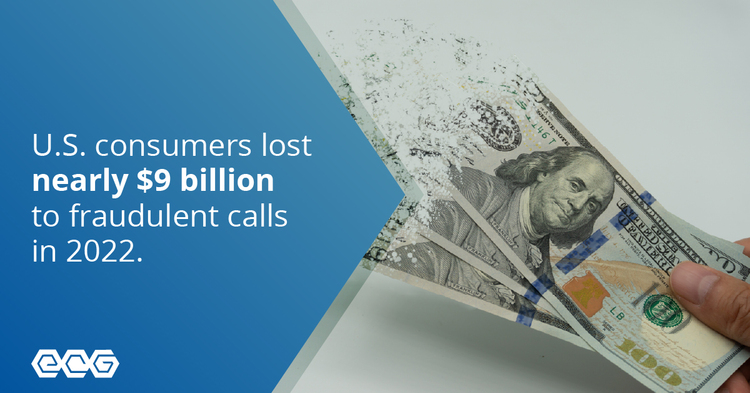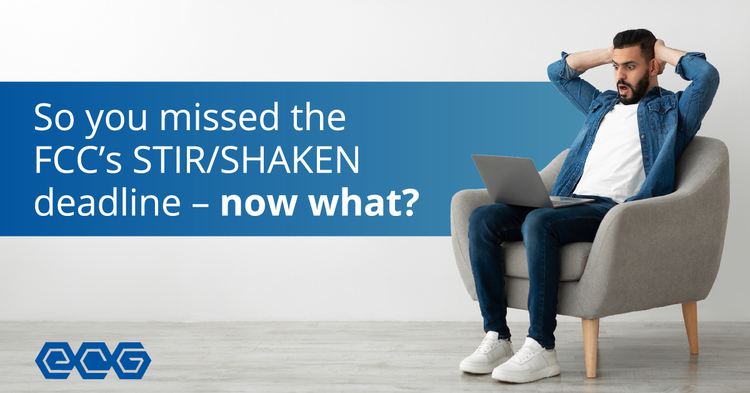U.S. consumers received more than 50 billion robocalls in 2022,1 so it's no wonder countering unlawful caller ID spoofing is now one of the FCC's top priorities. With the extended deadline for service providers to implement STIR/SHAKEN in the IP portions of their network right around the corner, we're sharing a few key considerations to be aware of.
What Is STIR/SHAKEN?
The Secure Telephone Identity Revisited (STIR)/Signature-Based Handling of Asserted Information Using Tokens (SHAKEN) framework is designed to combat unwanted robocalls. STIR/SHAKEN works by verifying and signing phone calls through digital certificates obtained from a certificate authority to detect and stop spoof calls before they reach the consumers.
When a call is made, the originating service provider "stirs" it by digitally signing it with a certificate. The call then goes through the network, and the receiving service provider "shakes" it by verifying the signature and ensuring the authenticity of the caller ID. The call may be flagged as fraudulent or spoofed if the verification fails.
To restore Americans' trust in their daily phone calls, the FCC has mandated telecom service providers to implement STIR/SHAKEN. Providers can comply with this mandate by ensuring each required component for caller identity authentication, signing, verification, and certificate management is functioning properly - and they need to accomplish this by June 30th, 2023.
Why Does the Deadline Matter?
Call compliance is always critical, but especially when it comes to STIR/SHAKEN. Illegal robocalls have been on the rise in the U.S. for years, and they've fundamentally changed the way many businesses operate. Adhering to this framework and investing in more ethical calling practices can help to alleviate the concerns of consumers who don't want to answer fraudulent robocalls.
Many large voice providers implemented STIR/SHAKEN last year, and scam and spam robocalls have decreased by nearly 30%.1 But if helping to increase consumer confidence isn't reason enough, failure to comply with the FCC's STIR/SHAKEN mandate may result in U.S. carriers being prohibited from receiving voice traffic from your business.

What Service Providers Need To Know Before June 30th
If you're a voice service provider, you likely have a lot of questions about implementing the STIR/SHAKEN by the FCC's deadline of June 30th, 2023. Here are a few important considerations to keep in mind:
Simple Networks Still Require STIR/SHAKEN
If you have multiple SBCs, application servers, or call routing servers and don't have a way to track the call back to the originating source, you may not be able to show where the call originated once it arrives at the STIR/SHAKEN signing device. In that case, you'll need to take additional measures to prove adherence to STIR/SHAKEN.
Robocalling From POTS Is Possible
Some businesses believe robocalling or fraudulent calling can't occur if their customer uses POTS (plain old telephone service) to connect to their service. However, your customer's equipment could still generate a fraud call or robocall if they have an IP-accessible system. For example, if they've connected their POTS line to an internet-based PBX, it can still be attacked through the internet and place a call.
Implementing STIR/SHAKEN Alone Isn't Enough
Simply following STIR/SHAKEN isn't enough since service providers must also comply with the TRACED Act, TCPA Act, and other regulations related to caller ID usage. All voice providers will soon have to sign numbers with an A-level or full attestation to show that they and the calling party are authorized to use that number, and the FCC expects providers to actively monitor their work to prevent illegal calls.
Get to Know "Know Your Customer"
Know Your Customer (KYC) wasn't relevant in the telecom industry for many years. But alongside STIR/SHAKEN, the FCC now mandates KYC policies to promote calling transparency. Under KYC, you should be able to identify what kinds of calls your customers are making and whether they should use that phone number to make their calls.
Get Expert Help Implementing STIR/SHAKEN With ECG
Implementing STIR/SHAKEN properly can be a challenge, and service providers who fail to meet all the requirements are at risk of getting their domestic voice traffic blocked.
As voice engineering experts, ECG can offer the technical guidance your business needs to comply with STIR/SHAKEN in the simplest, most cost-effective way. Our team can help you understand which regulations are permanent and which are subject to change, so you can reduce any risk of non-compliance without having to make unnecessary long-term decisions. Don't wait until it's too late - contact ECG for help with STIR/SHAKEN today.
Sources:


